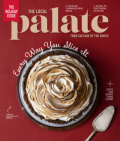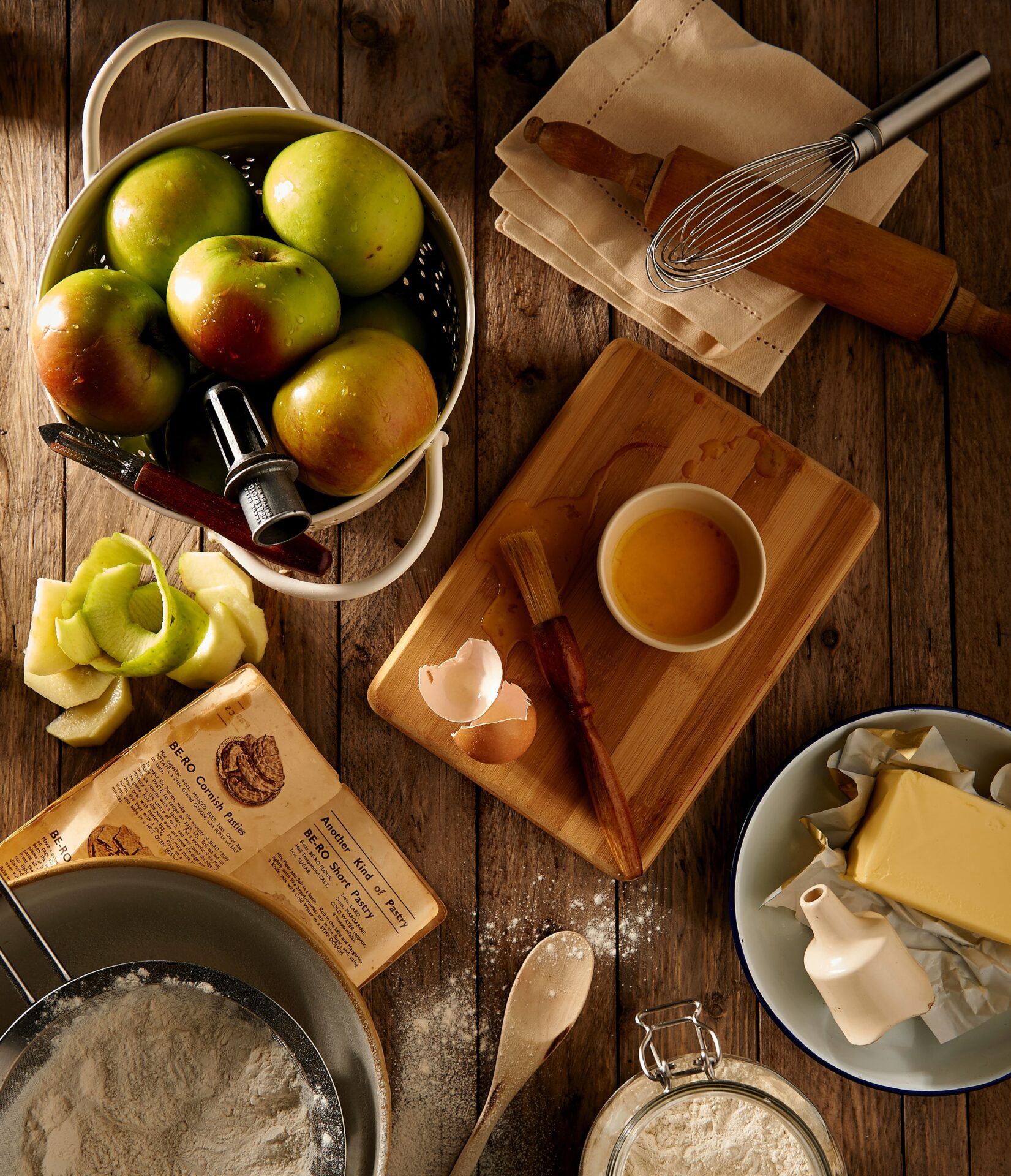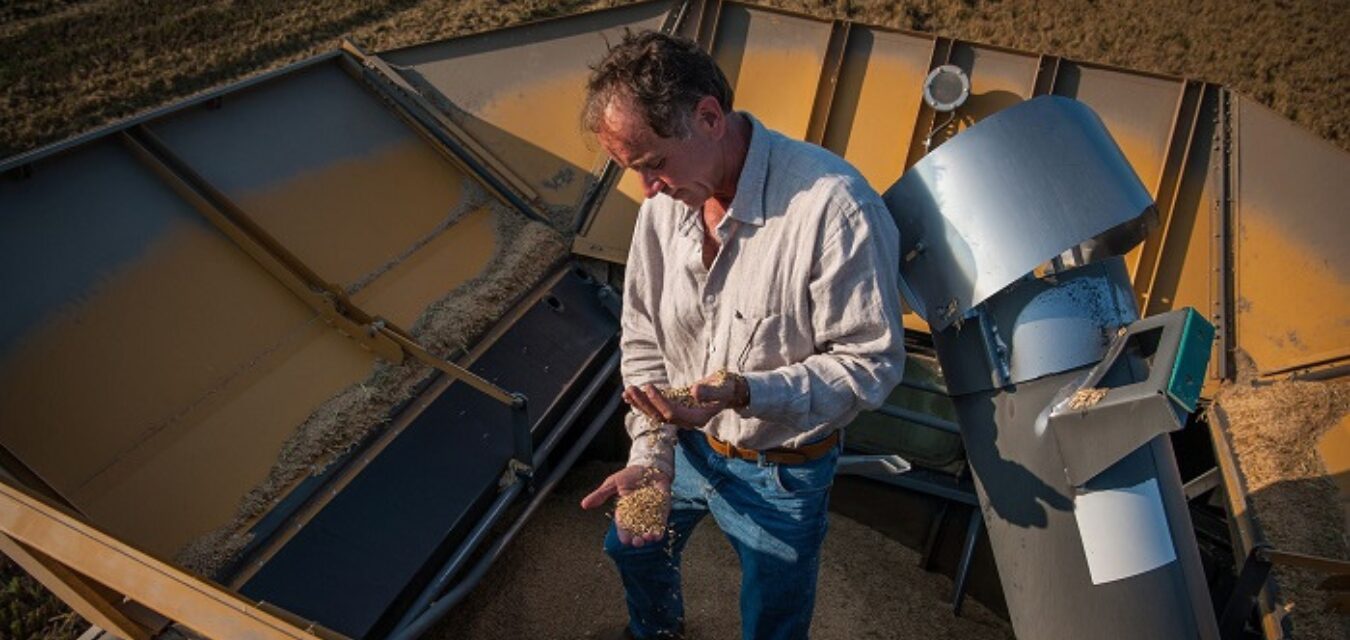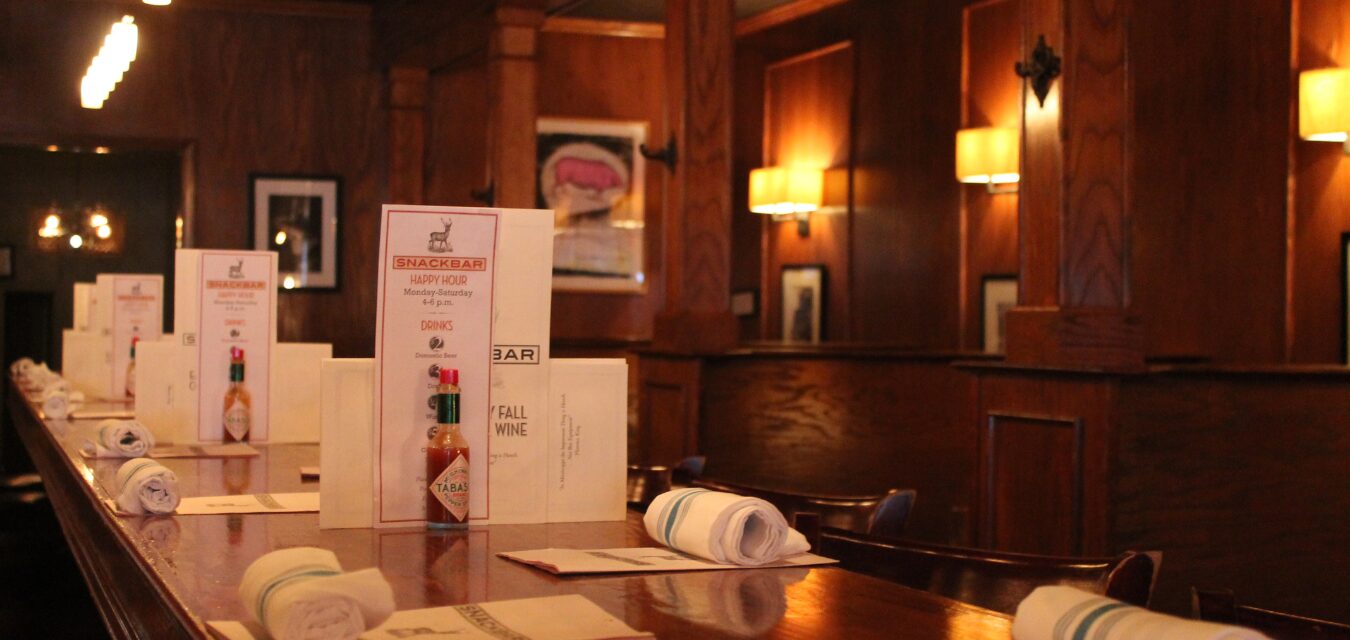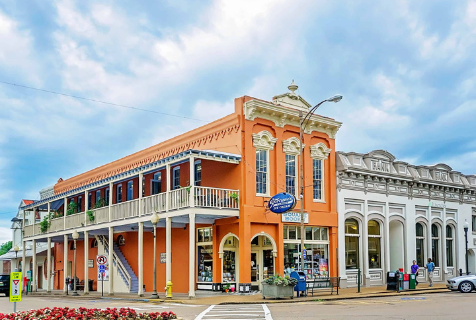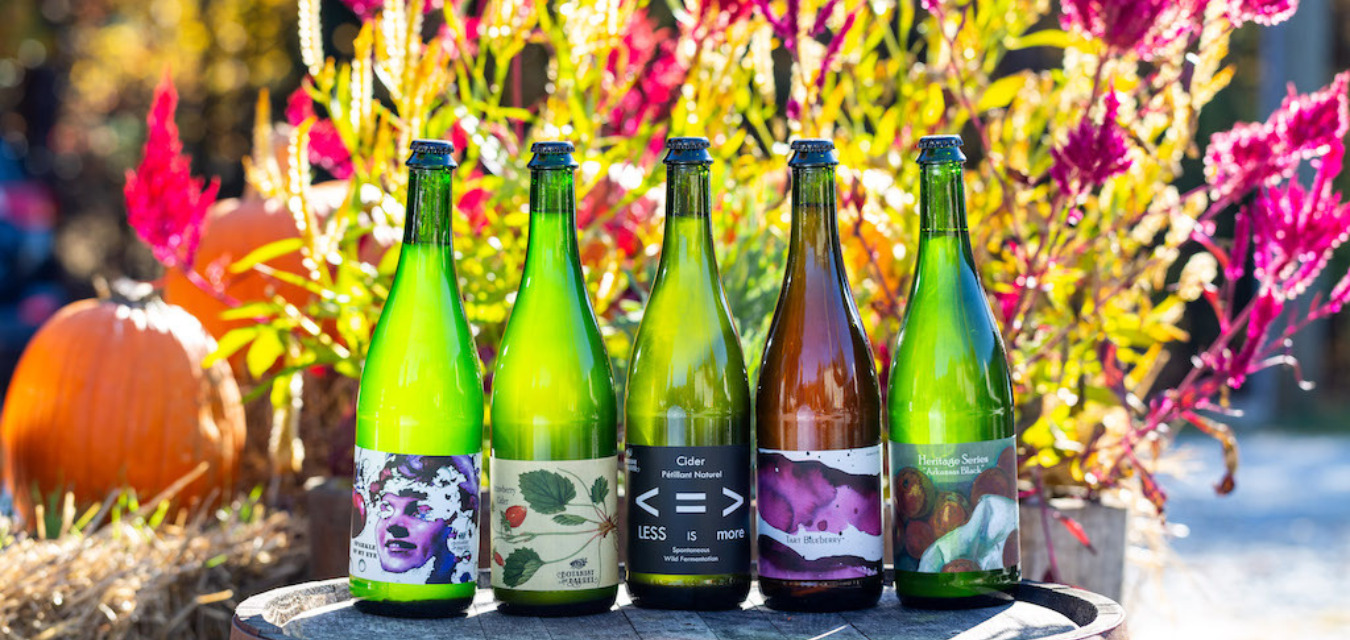Mississippi gin from Wonderbird Spirits breaks the mold on locally sourced spirits
Deep in the land of Faulkner, whose drink of choice was notoriously bourbon, is the only distillery in the country to craft artisan gin using rice as its base grain. Wonderbird Spirits, set outside of Oxford, was founded in 2017, less than a decade after the state’s first distillery since Prohibition opened.
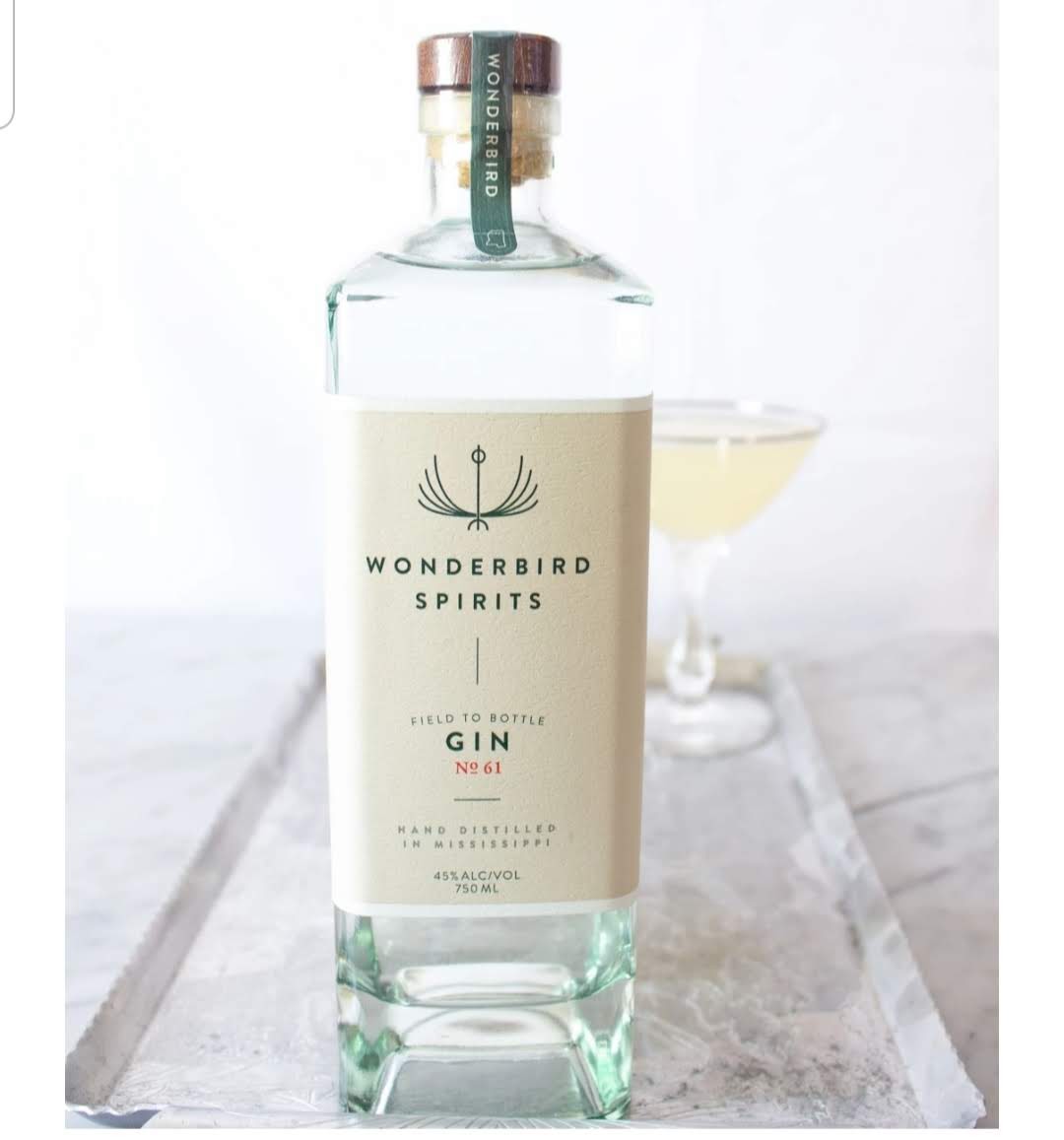
It was started by Chand Harlow, Rob Forster, and Tom Alexander, who all moved back to the Magnolia State after living all over the country. Harlow had been working in finance, Forster in law, and Alexander in IT. Through a mutual friend, Harlow met Forster, who brought on Alexander, his former college roommate.
“I was trying to figure out how to align my passions with my career,” Harlow says, a sentiment echoed by his business partners. “We all sort of changed our lives for this,” adds Alexander.
Each leaned on their own backgrounds to establish their roles within the distillery. “Tom and Chand do more of the distilling, data entry, and supply management on the production side and I do more of the communications, business development, and sales trips on the public-facing side,” says Forster.
“We wanted to put Mississippi on the map for something it’s not known for: producing really high-quality, world-class spirits,” says Harlow. “We knew from the beginning that we wanted to be a grain-to-glass distillery.”
That meant deciding what the chief ingredient of their spirit would be. “We knew 100 percent that we were going to use Mississippi agriculture. We didn’t know it was going to be rice at first,” Alexander explains. They toured the state, sampling different products like corn and sweet potatoes.
“Rice was intriguing from the beginning because we’re sake fans and sake’s natural florality led to thinking it could be an interesting gin base,” Harlow notes.
The trio was introduced to Two Brooks Farm, located in Sumner, after seeing their rice listed on the menu at one of chef John Currence’s restaurants.
After contacting the family-run business, Alexander recalls, “They brought us 200 pounds of every type that they had—four giant bags of five different varieties.” But they quickly narrowed their focus to just one. “We fell in love with the distillate of this jasmine variety,” Harlow says. “I sometimes think of it as an eleventh botanical,” adds Forster.
From there, it was a matter of learning how to distill rice, which they learned by talking to other sake makers and doing plenty of research. “Like most things, the best learning is achieved by doing and we embraced that with a sort of stumbling upward attitude,” Forster says.
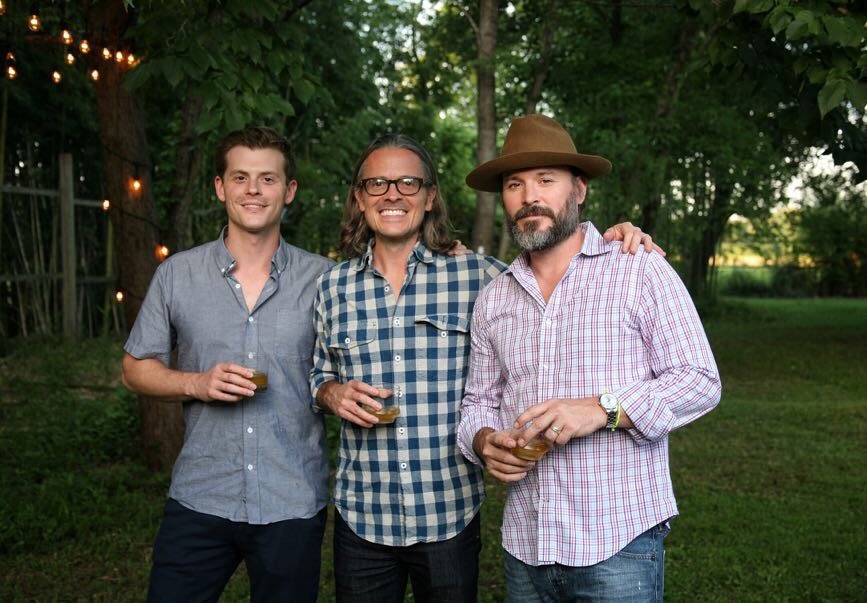
The rice from Two Brooks is just part of what gives Wonderbird’s gin its nuance. Located a little over an hour away from the distiller, Two Brooks grows the rice, mills it, and prepares it for the distillery. Lawrence Wagner, the farm’s manager, points to the flooded fields, set deep in the Delta, where their product comes to life in nutrient-rich soil. His father, Mike, who came from a long line of farmers, purchased the property in the 1990s. They now grow jasmine and Basmati varieties and are even experimenting with sushi rice.
“You have all of these small rivers and tributaries running into the Mississippi River. All of this silt loam and other soils from across the United States have washed into this basin,” Wagner explains.
It’s this unique ecosystem that allows the rice to take on the flavors incorporated into Wonderbird Gin. “It’s a sticky rice, a fragrant rice. The fact that it’s so sticky is the reason they use it because it breaks down easier than the other varieties,” says Wagner. It’s the broken pieces that are incorporated into the gin, which happens to utilize what would otherwise be waste.
Borrowing from the Japanese tradition of making rice gin, the Wonderbird crew inoculates the jasmine rice with Japanese koji, a type of mold used in sake production. It breaks down the rice for fermentation while retaining its silkiness. More rice is added into the cookpot, creating a porridge. Yeast is added, turning it into a rice milk called amazake. This product is then distilled more than twenty times, moving from vapor to gas and back again.
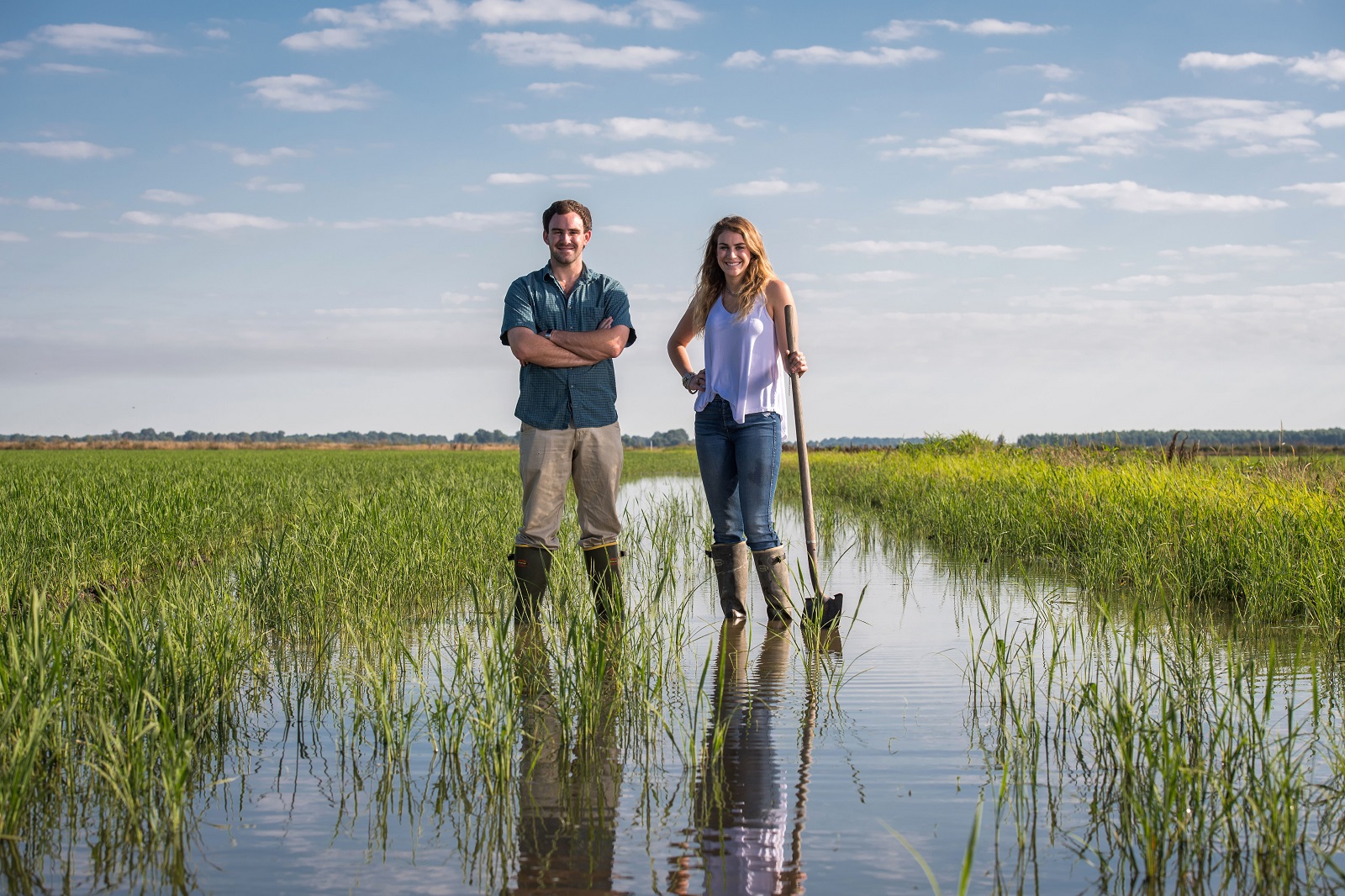
Once the neutral spirit has reached its desired alcohol level, it’s required to have botanicals to be considered gin—specifically juniper, which Wonderbird sources from Italy. After a year of building the distillery and another year of recipe testing and development of the botanical profile, Wonderbird debuted its first bottle to the public in 2019: No. 61, named for the sixty-first recipe.
“We didn’t stop at sixty-one, obviously. We’ve [now] done hundreds of recipes,” Alexander says.
At the distillery, where they also have a tasting room, one wall is covered in individually jarred botanicals. Each of the ten botanicals they use in No. 61 is distilled separately, including Southern pine and red clover, both sourced locally, along with Meyer lemon peel, black peppercorn, and lemongrass. Another bottling (No. 97) features magnolia, the state flower, and cinchona bark, while a third bottling is a cask-finished version of the No. 61. The team currently produces about six hundred bottles every few weeks but are continuing to ramp up volume as demand increases.
As the team puts it, Wonderbird is a love letter to the state, embracing Mississippi ingredients, but also to Oxford. Just about every restaurant or bar in town has a Wonderbird cocktail on the menu, including James Beard award-winning Snackbar.
There, head bartender Ivy McLellan has created a wide range of inventive drinks, including a horchata with Two Brooks rice, which he infuses with honeysuckle and Wonderbird’s magnolia gin. There’s also a riff on an old fashioned with Wonderbird’s limited release barrel-rested No. 61.
“It offers a wonderful bouquet of botanicals and has nice floral aspects. The fact that it’s a hyperlocal Mississippi product is a wonderful bonus,” McLellan says. “Sipped on its own, the velvety liquid coats your tongue and allows you to really appreciate the nuances.”
Keep Reading
Dining Out
Snackbar
Visit Snackbar for a dimly lit, hunting club-inspired interior and nourishing meals of earthy Mississippi- and Indian-style “Bubba brasserie”
On the Road
Oxford
Oxford is the perfect destination for the food lovers who crave a cocktail of small-town charm and world-class dining.
Southern Makers
Botanist & Barrel Champions Natural Cider
At Botanist & Barrel, one North Carolina cider producer is seeking to express her region’s terroir through natural fermentation processes.
share
trending content
-
FINAL Vote for Your Favorite 2025 Southern Culinary Town
-
Get To Know Roanoke, Virginia
-
Shrimp and Grits: A History
by Erin Byers Murray -
New Myrtle Beach Restaurants Making Waves
-
FINAL VOTING for Your Favorite Southern Culinary Town
More From Southern Makers
-
5 Southern-Made Sparkling Wines for the Holidays
-
The Local Palate’s Ultimate Holiday Gift Guide for Food Lovers
-
Southern Kitchen Stores Stock Cozy Essentials
-
Wild Flavors of Blindhouse Beer | Listen
-
Kitchen Upgrade: Savvy Skillets
